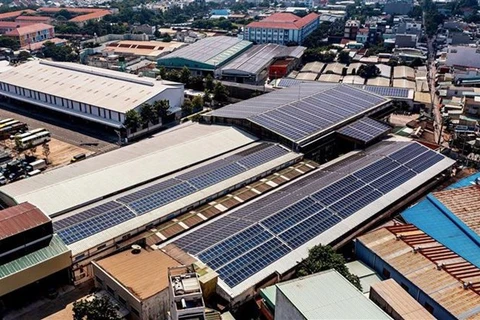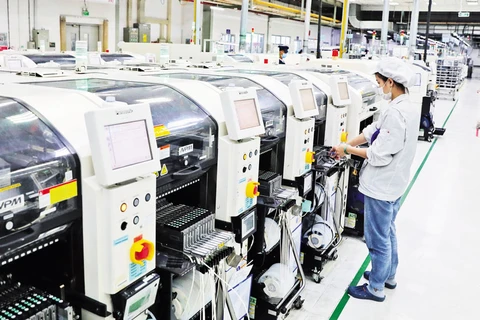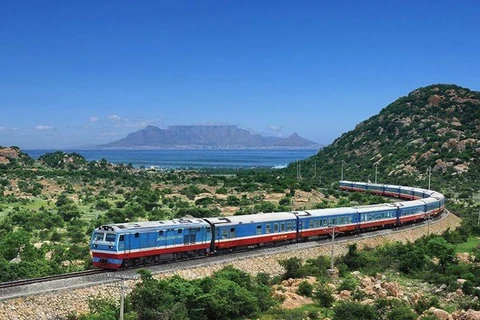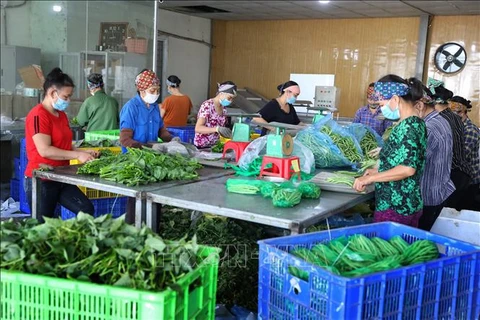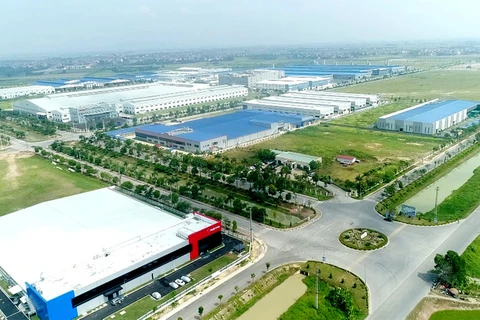Bac Giang (VNA) – Promoting digital transformation in agriculture and rural areas is one of the key tasks that the northern province of Bac Giang will focus on from now until 2025, said Director of the province’s Department of Agriculture and Rural Development Duong Thanh Tung.
Accordingly, the province will build a big data system of agriculture and rural development relating to land, crops, livestock, and fisheries. It also plans to digitalise data on concentrated agricultural production areas, which together with an electronic diary, will facilitate the products’ origin traceability and the issuance of planting area/packaging facility codes and farm identification codes.
From now until 2025, Bac Giang will also pay more attention to supporting farming households with key agricultural products and One Commune One Products (OCOP) products to join e-commerce platforms.
Agricultural production households will receive support to create accounts and introduce their products on e-commerce platforms with all necessary information on prices and standards on traceability, quality such as Global Good Agricultural Practices (GlobalGAP) and Vietnamese Good Agricultural Practice (VietGAP) that they apply in production.
The province will boost digital transformation in managing and developing OCOP products and building smart new rural areas.
The province plans to attach importance to developing smart agriculture and precision agriculture, and increase the proportion of digital agriculture in the economy to at least 15%. It will further apply blockchain technology in tracing products’ origin and build a monitoring centre on forest management and protection in the province.
In addition, Bac Giang has built and expanded smart village and nature-based agriculture models thanks to the application of digital technology. It has been making efforts to support businesses and cooperatives in digital transformation in agriculture. Information technology is also used to collect, manage, and analyse data for early warning of diseases and natural disasters.
In the third quarter of 2023, the province completed its database on livestock and fisheries production in nine districts and Bac Giang city. Moreover, it continued to update its irrigation database and add data from 162 establishments to facilitate the granting of food safety certificates.
Bac Giang has developed digital maps of concentrated production areas and developed planting area codes for farms with at least 10 ha each.
Notably, the locality has used drones in sowing seeds and spraying pesticides on rice and lychee areas.
Many digital transformation models have been built and implemented in the local agricultural sector such as the model of applying Biofloc technology to intensive fish farming in Minh Duc and Nghia Trung communes (Viet Yen district) and Tan Thanh commune (Lang Giang district), and the use of drones to control pests and diseases in rice production and lychee cultivation in accordance with VietGAP standards in Duong Duc commune (Lang Giang district), Tu Lan commune (Viet Yen district) and Quy Son commune (Luc Ngan district).
In the livestock sector, the province has applied information technology in disease management with the Vietnam Animal Health Information System (VAHIS).
Meanwhile, in the fisheries sector, Bac Giang has used automation technology with sensors, environmental measuring equipment, oxygen generators, and fish feeding machines being integrated with camera systems, computer and smartphone for remote monitoring and control./.


